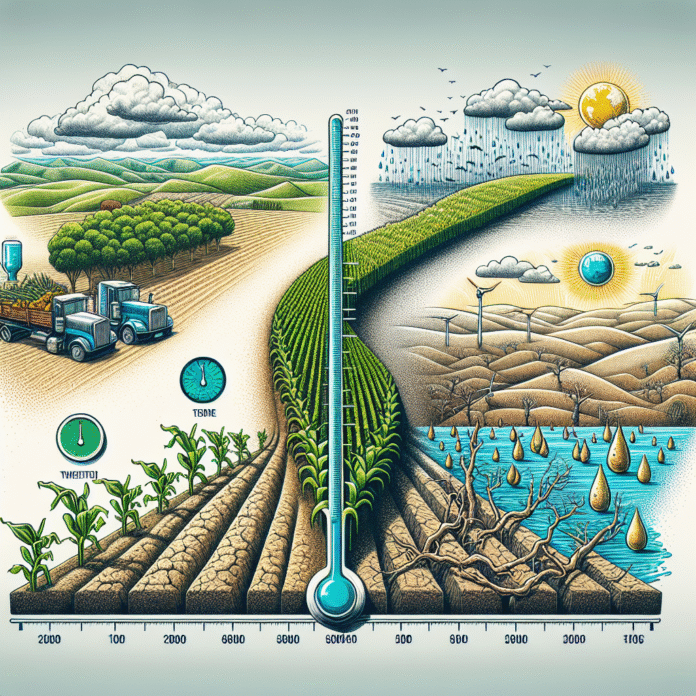Climate Change Impacts Food Security in South Africa
“`html
Climate Change Poses Significant Risks to Food Security in South Africa
As climate change continues to escalate, South Africa is confronting a critical decline in agricultural productivity, which poses a serious threat to food security across the nation. The increasing frequency of extreme weather events, such as droughts and floods, has severely impacted crop yields and livestock health, leading to a concerning trajectory for the country’s agricultural sector.
Impact of Climate Variability on Agriculture
The agricultural landscape in South Africa is highly vulnerable to climate variability. Changing rainfall patterns, rising temperatures, and prolonged droughts have resulted in reduced soil moisture and crop failure. Major staple crops, including maize and wheat, are particularly susceptible, leading to food shortages and increased prices. Additionally, livestock farming is being adversely affected, with heat stress and water scarcity leading to lower productivity and higher mortality rates among animals.
Socioeconomic Consequences
The decline in agricultural output due to climate change has profound socioeconomic implications. Many South African communities rely on subsistence farming for their livelihoods. As agricultural yields drop, food prices soar, pushing vulnerable populations further into poverty and food insecurity. This situation exacerbates existing inequalities and poses a significant challenge to the government’s efforts to achieve sustainable development goals.
Adaptation Strategies and Solutions
To mitigate the adverse effects of climate change on food security, South Africa must adopt comprehensive adaptation strategies. This includes investing in climate-resilient agricultural practices, such as drought-resistant crop varieties, efficient water management systems, and sustainable farming techniques. Additionally, enhancing agricultural infrastructure and providing training to farmers can help improve resilience against climatic shocks.
Role of Policy and Community Engagement
Effective policy frameworks are essential to support the agricultural sector in adapting to climate change. The government must prioritize climate-smart agriculture and provide financial incentives for farmers to adopt sustainable practices. Community engagement is also crucial; empowering local farmers with knowledge and resources can foster resilience and innovation at the grassroots level.
Conclusion
Addressing the challenges posed by climate change is imperative for safeguarding food security in South Africa. By implementing adaptive strategies, fostering community involvement, and prioritizing sustainable agricultural practices, the nation can work towards a more resilient agricultural future and ensure that all citizens have access to sufficient and nutritious food.
“`


